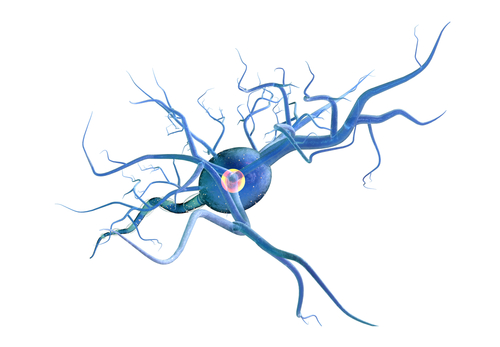Key Myelin Protein, MBP, Seen to Break Down Differently in Brains of MS Patients
Written by |

Researchers monitoring the decomposition of an abundant brain protein, called myelin basic protein (MBP), discovered that this protein breaks down differently in people with multiple sclerosis (MS) than it does in those without the disease, particularly in two surface regions, and that difference may be the trigger for immune reactions and myelin damage.
MBP, which accounts for 35 percent of myelin protein, is long-lasting in the brains of all people, but breaks down as part of the aging process.
The study, “Isoaspartic acid is present at specific sites in myelin basic protein from multiple sclerosis patients: could this represent a trigger for disease onset?,” published in the journal Acta Neuropathologica Communications, provides new insights into the causes of MS and, possibly, new therapies that might prevent its onset or help arrest its progression.
Myelin is a fatty white substance that surrounds the axon of some nerve cells, forming an electrically insulating layer, and is essential for the proper functioning of the nervous system. MS is associated with breakdown of the myelin sheath, affecting the ability of parts of the central nervous system to communicate, and resulting in a range of symptoms.
Researchers tracked the decomposition of MBP in cerebellum tissue samples from eight people with MS and 21 people without the disease. The cerebellum is the brain region that regulates motor movements, and is particularly affected in MS.
They discovered that the MBP indeed breaks down with aging, but this decomposition does not affect the ability of myelin to work as an insulator of electrical signaling in the brain. In MS patients, however, MBP was seen to break down differently, and that difference may be key to activating an autoimmune response.
“We can distinguish the myelin basic protein in MS patients from people who do not have MS,” Roger Truscott, a researcher at University of Wollongong and the study’s lead investigator, said in a news release. “The structure of the MBP from MS patients had two regions where specific changes have accumulated. We hypothesize, based on the novel structures formed here, that these two regions provoke an immune response.”
This discovery may move science a step closer to identifying the cause of MS, and help researchers working to prevent the disease, Truscott said.
“The finding … that specific sites of PTM [post-translational modification, or changes in proteins] in MS patients are localized in two zones of MBP suggests that these regions may be involved in antigen recognition by the body’s immune surveillance machinery,” the researchers concluded. “This discovery unlocks the possibility of selectively masking such sites on MBP using small molecules.
“If this hypothesis can be verified, it may lead to the development of a new class of drugs that could potentially inhibit the onset of MS, as well as help in modulating the immune response of patients who already have developed the disease.”


